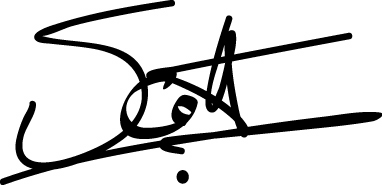Product Planning
The product is the heart of the operation. It may be a physical product, or it may be a service. Whatever it is, your company’s survival depends upon people’s willingness to buy it. Therefore, a solid Product strategy is very important.
Often, companies will market a variety of products under an Umbrella Brand. By offering this Product Mix, companies expand their Customer Base and control a larger market share.
For Example
Coca-Cola Bottling offers Coke, Caffeine Free Coke, Diet Coke, Caffeine Free Diet Coke, Cherry Coke, Diet Cherry Coke and more recently, Vanilla Coke, under the Coca-Cola brand.
In addition, Coca-Cola Bottling offers a variety of non-cola brands such as Mr. Pibb, Sprite, Nordic Mist, Minute Maid (another umbrella brand including Minute Maid premium Choice and Minute Maid Juice To Go), Dasani, and Nestea.
There are approximately 300 beverages in the Coca Cola Bottling portfolio worldwide.
Evaluating the Product Mix
The product mix is evaluated in terms of width and depth.
Width
The number of product lines offered. For example one company may offer Cosmetics, Shampoo, and Shaving Cream.
Depth
The number of products offered in one product line. For example, the cosmetics line might include several shades of lipstick, several shades of eye shadow, etc.
Product Classifications
There are 2, each with subcategories.
Consumer Products
Consumer products are items consumed by the general public for private use, and generally fall into 4 categories
Convenience Products
These generally include inexpensive products that are purchased rather frequently. Examples include, milk, bread, soda, detergent, gasoline, etc. Convenience services include hair styling, dry cleaning, etc.
These are impulse items and staples that consumers prefer to purchase without much thought or effort. Since an involved decision making process is not required, they are generally distributed through a wide variety of outlets ranging from grocery stores, to mini-marts, to vending machines.
Shopping Products
Shopping products are usually more expensive than convenience items. They require a more involved purchase decision process. The consumer usually is comparing price, features, and benefits before making the final purchase. Examples of shopping products include appliances, furniture, electronics and clothing. Shopping services include such tings as landscaping, hair styling, and vehicle maintenance.
Specialty Products
Specialty products include items that enjoy solid brand loyalty from customers. Often they offer a feature/benefit not found in other brands, so customers are willing to spend extra time and effort to locate and obtain the item.
Often the combination of limited demand and distribution warrant an increase in price, further enhancing the customer’s perception of value.
Unsought Products
These are products and services that the average consumer is not actively seeking. Health insurance, medical care, funeral services, and bail bonding fall into this category.
Business products
These are products that change hands in “business to business sales”, and include 5 categories.
Installations
Expensive items that are infrequently purchased fall into this category, which is similar to the consumer specialty category. Often, an extended decision making process is involved, as business managers weigh the features and benefits against cost. Cost is often NOT the deciding factor in this category
Examples include such things as Buildings, Computer Networks, Trucks, Airplanes, or heavy manufacturing equipment.
Accessories
These are items that are less expensive than installations, but still require an investment in time and energy to research cost/benefits before final purchase. Often, they are items required to support installations.
Examples of accessories include computers, copy machines, printers, etc.
Raw Materials
Raw materials are unrefined products that are used to create a final product. They are very often bulk commodities, such as corn, sugar, lumber, coal, steel, etc.
Component Parts
These are more refined than raw materials, including items such as batteries, hard drives, lamps, etc. Generally, these are items that a manufacturer would purchase from another manufacturer, who is acting as a subcontractor.
For example, Bosch makes spark plugs used by BMW.
Supplies
Think “paperclips”. This category is comparable to the consumer convenience category.
